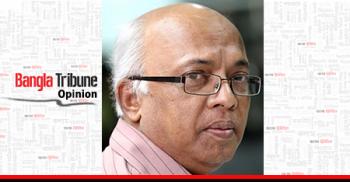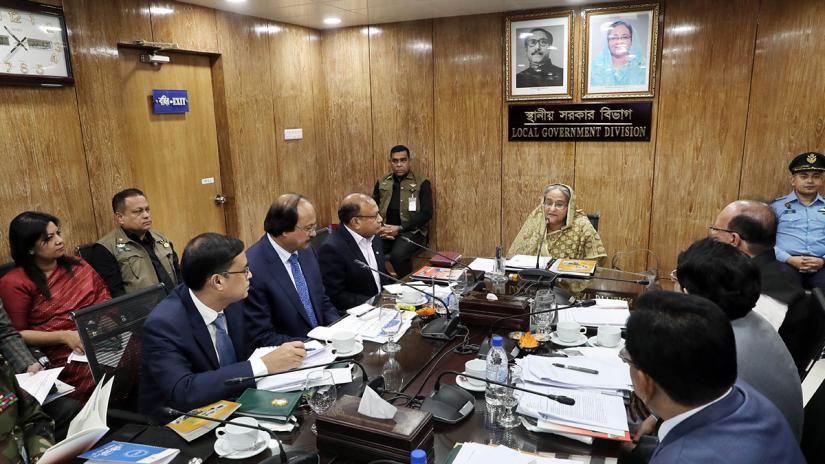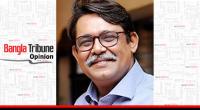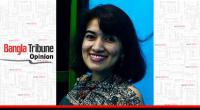 Bangabandhu Sheikh Mujibur Rahman was all too often exasperated by the elitism of the bureaucracy, so much so that at one point he advised civil servants to step out of their trousers and into shorts in order to get down to proper work. A theme he stressed over and over again was for civil servants to shed the old colonial psychology dating back to the British colonial era and Pakistani times and identify with their humble, poor, suffering fellow Bengalis.
Bangabandhu Sheikh Mujibur Rahman was all too often exasperated by the elitism of the bureaucracy, so much so that at one point he advised civil servants to step out of their trousers and into shorts in order to get down to proper work. A theme he stressed over and over again was for civil servants to shed the old colonial psychology dating back to the British colonial era and Pakistani times and identify with their humble, poor, suffering fellow Bengalis.
All these decades after Bangabandhu’s assassination, despite so many governments having come and gone, Bangladesh’s bureaucrats insistently demonstrate a refusal to get in touch with the times and with reality. Condescension remains part of behaviour in the bureaucracy, an attitude which continues to be an impediment to forward movement on the part of the nation. Only the other day, the secretary of the ministry of railways, unable or unwilling to explain to a television reporter certain discrepancies in the sale of railway tickets, advised him to commit suicide. One does not quite recall any such stipulation in the civil service rules of business of civil servants advising people to take their own lives. But here was something new.
We are not sure if administrative action has been taken against this haughty bureaucrat. Again, one wonders if the hubris he demonstrated before the reporter did not have anything to do with his influence in the civil administration. In a third world country, connections matter, which is why so many loan defaulters get away with the money they have purloined from the banks. In a society where a poverty-stricken farmer, unable to pay back the paltry loan he has taken from a bank, is hounded day after day by his creditors, nothing of the punitive kind happens to those who have divested the state treasury of a huge quantum of money and have blatantly destroyed the lives of tens of thousands through crass manipulations of the share markets.
It then stands to reason that the secretary of the ministry of railways cannot but ask that impertinent reporter to go commit suicide. It may well be that the bureaucrat will be placed under suspension for sometime or transferred to another ministry. To expect the labyrinthine processes of administrative inquiry and judgment in such instances to be speeded up is to ask for the moon. As for the reporter, he will simply have to swallow the insult. That is not unusual, is it? Over the past few decades we have all grown accustomed to conditions where the media is consistently under threat, either from individuals to whom civilized behaviour is a strange reality or from the laws which we have observed taking shape over the decades. It all began with Ayub Khan. It did not have to be that way. The Press and Publications Ordinance, the Special Powers Act, Section 57 and the Digital Security Act are laws we could have done without. The shadow of such inhibitions on the work of the media is what fundamentally encourages men like that railway bureaucrat to come forth with their detestable feudalism in dealing with journalists and indeed with the citizens they are expected to serve.
Winston Churchill explained the nature of the malady better than anyone else could. ‘After a time’, said he, ‘civil servants tend to become no longer servants and no longer civil.’ It is a trait among our bureaucracy which somehow has taken the shape of a permanent characteristic. But why blame the civil servants? They are part of a system which, once it absorbs them and makes them integral parts of it, ensures that they snap their links with the general citizenry of which they were components till recently. Once that happens, they can only relish the idea of ruling rather than serving. Baksal, introduced by the Father of the Nation rather late in the day, would in large measure have brought about a radical change in the nature of the civil service through educating bureaucrats in societal rootedness. It was a bold move that was squashed through well-organised conspiracy. The two men who could have reshaped the civil service structure in Bangladesh, indeed recast society in line with tradition and modernity ---Bangabandhu Sheikh Mujibur Rahman and Tajuddin Ahmad --- both had the life snuffed out of them. And we have continued to pay the price. It has come to a pass where bureaucrats are no longer the workers who will implement policy undertaken by elected governments. They, at least some of them, have turned to peddling advice on how and when suicides should be committed. The rest continue to enjoy the lazy comfort which comes with unadulterated elitist sloth and misplaced authority.
As for the media, it has grown weary of the systematic and systemic assaults made on it at periodic intervals and not just by the bureaucracy. It is not asked by politicians to practise journalism to the nth degree of freedom. It is advised to be objective in its reportage and editorial comments, whatever that means. Not very long ago, journalists were referred to as khobish, scum, by a minister who has since shuffled off his mortal coil. He did not apologise nor was he asked to resign. Journalists have been assaulted by goons hired by disreputable men; they have had their cameras broken by the police. Images of police officers about to land a fist on the face of a veteran photo-journalist and seizing a journalist by his collar are part of the long sordid story.
Postscript: A good number of bureaucrats have appealed to the government to have the interest accruing on the loans they are entitled to or expect to come by follow Islamic principles. Note their shamelessly revisionist approach to Islam. You are reminded of all the corrupt men in possession of black money looking for halal food to eat. No one asks them if the wealth they are sunk in came into their lives through halal means.
Syed Badrul Ahsan is Editor-in-Charge, The Asian Age.


